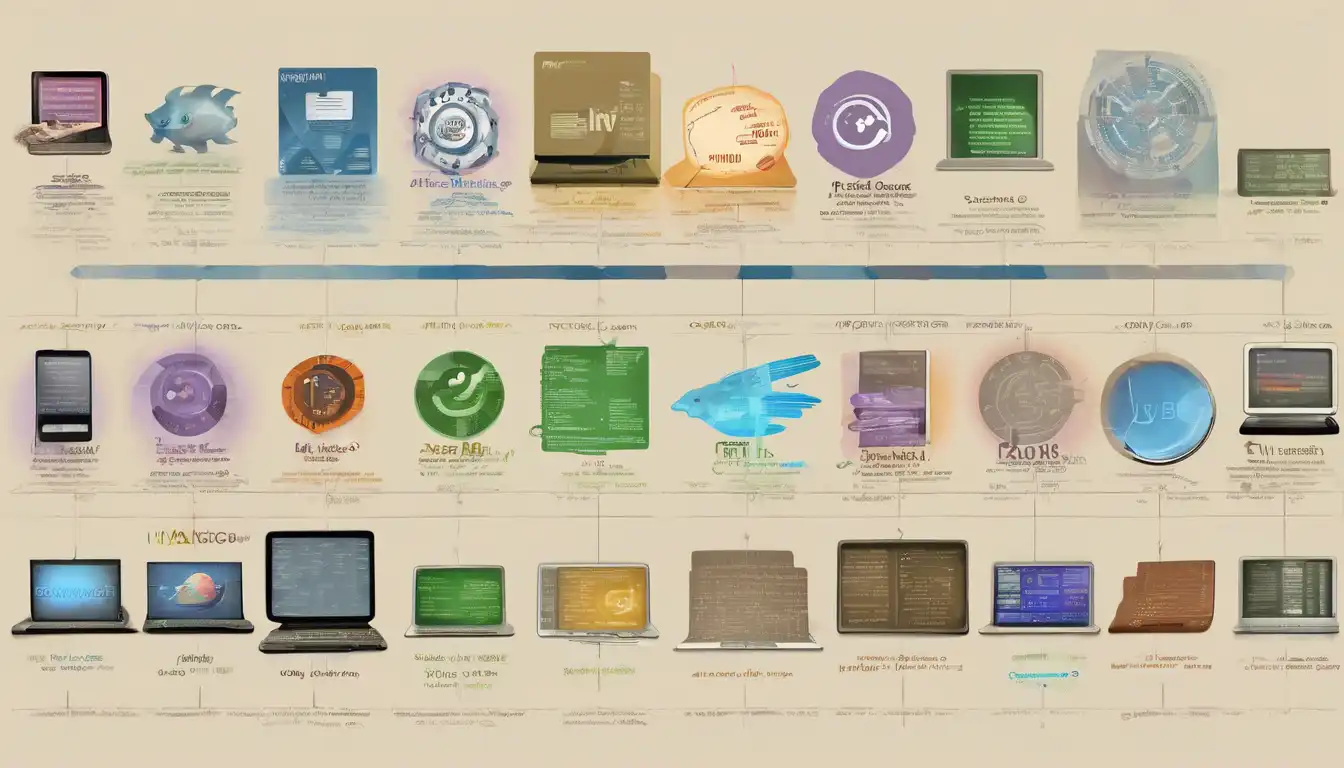The Dynamic Journey of Programming Languages Through the Ages
Programming languages have undergone a remarkable evolution since their inception, shaping the way we interact with technology. From the early days of machine code to the high-level languages of today, each step in this journey has brought us closer to more efficient and intuitive ways of coding.
The Dawn of Programming Languages
The history of programming languages begins in the 1940s with the advent of machine language, the most basic form of programming. This was followed by assembly language, which introduced a slight abstraction from machine code, making programming slightly more accessible.
The Rise of High-Level Languages
The 1950s and 1960s saw the development of the first high-level programming languages, such as FORTRAN and COBOL. These languages allowed programmers to write instructions in a more human-readable form, significantly reducing the complexity of software development.
The Object-Oriented Revolution
The 1970s and 1980s marked the emergence of object-oriented programming (OOP) languages like C++ and Smalltalk. OOP introduced concepts such as classes and objects, enabling more modular and reusable code.
The Internet Age and Beyond
With the rise of the internet in the 1990s, languages such as Java and JavaScript became indispensable for web development. Today, we see a continued evolution with languages like Python and Ruby, which prioritize readability and efficiency.
Looking to the Future
As technology continues to advance, so too will programming languages. Emerging trends such as artificial intelligence and quantum computing are likely to drive the development of new languages tailored to these fields.
For those interested in delving deeper into the history of programming languages, exploring the history of computing can provide valuable context.
Conclusion
The evolution of programming languages is a testament to human ingenuity and our relentless pursuit of better tools to solve complex problems. As we look forward, it's clear that this journey is far from over.
